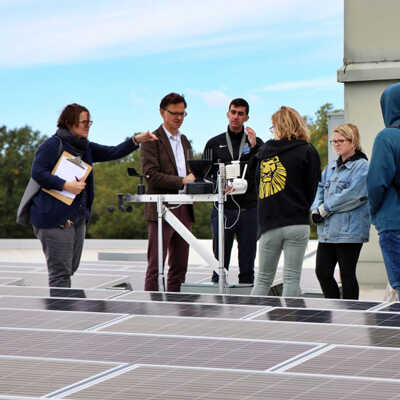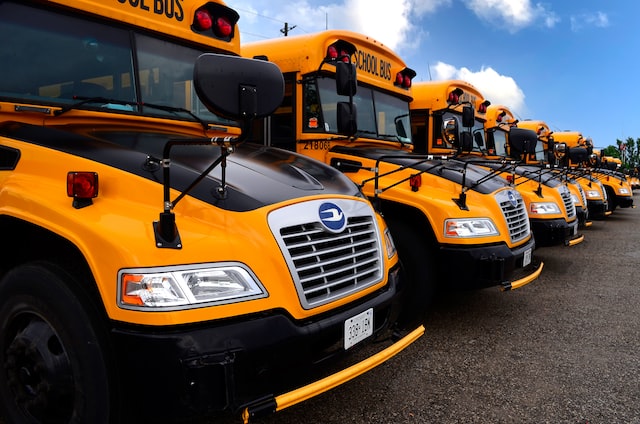Lee County Public Schools
Solar Helps Run 5 Campuses & Could Power EV Buses in the Future
Solar power systems at five campuses of Lee County Public Schools were installed in 2023 with a total generating capacity of 967 kilowatts. On-campus solar created many opportunities to save money and integrate clean energy education into classroom education and workforce development.
Six Lee County students participated in our pilot workforce development program. This program allowed for students to receive hands-on learning while earning competitive wages and community college credit all while installing solar systems on their own schools. A couple students obrtained full-time jobs after graduating because of their work with the program.
Lee County students also participate in our Throwing Solar Shade® program at no additional cost. Offered in conjunction with National Energy Education Development (NEED), TSS offers a classroom curriculum that complies with Virginia Standards of Learning from grades K-12. The curriculum includes teacher training, lesson plans, and hands-on kits for science experiments on sustainable power.
At the same time, Lee County Schools has begun to electrify their school bus fleet. To work towards the goal of powering their new electric buses with solar power, Secure Solar Futures is helping the school division to integrate two-way charging. As part of a pilot project, the company and the schools will work together to study the potential for vehicle-to-building (V2B) power sharing between EV bus batteries and school buildings during summer break and other idle times. Charging bus batteries when power is cheap at night and then selling power back into the grid during the day when power is more expensive can offer schools an additional revenue source.
Electric school buses will offer a variety of benefits that improve service, save money and even help recruit and retain bus drivers:
- Safety. Electric school buses are built and tested by the same standards as any other bus on the road. Battery packs on electric buses are well insulated and designed to safely withstand major impacts.
- Full range, quick charge. Today’s electric buses can go more than 100 miles on a full charge, enough to cover many routes in urban, suburban, and rural areas. And EV buses can be fully charged in 3-4 hours in between morning and afternoon runs.
- Smooth, quiet ride with plenty of pickup. Bus drivers love EV buses because they’re more fun to drive. They’re so quiet that the driver can communicate easily with the kids. As a bonus, a quieter bus ride leads to calmer, better behaved riders. In today’s tight labor market, transportation managers know that electric buses will help them hire and retain the best bus drivers.
- Cheaper to fuel and maintain. The electricity to run EV buses is much cheaper per mile than diesel fuel required by traditional buses, and energy efficient features in electric buses like regenerative braking make the most of the power they use. The electric motor that runs an EV bus has 99% fewer moving parts than an internal-combustion engine. That makes an electric bus up to 50% cheaper to maintain.
- Backup power and selling power when off duty. With bi-directional charging, bus batteries can offer backup power to school buildings when the power goes out.
Lee County continues to be a solar leader as they plan to complete more solar projects with Secure Solar Futures. The systems currently avoid approximately 895 metric tons of carbon dioxide, the equivalent to 174 homes electricity use in one year and carbon sequestered by 1,068 acres of U.S. forests in one year.
Lee County Public Schools also received a grant from the Coalfield Solar Fund in 2023 to install an additional 750 kilowatts of solar power on campus starting in 2024.
The Challenge
Run new electric buses on solar power
The Result
A pilot program will create more opportunities for cost savings



